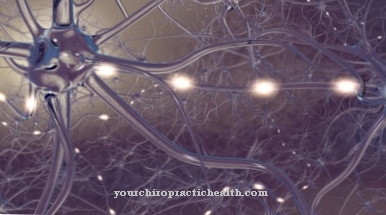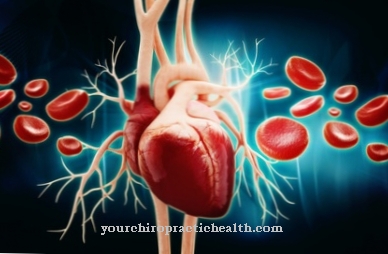Shame respectively shame Just like sadness or joy, it is a basic human emotion. In Christian and Muslim mythology, shame first appeared after Adam and Eve ate fruit from the Tree of Knowledge and became aware of their nakedness.
What is the shame?

From a psychological point of view, shame is closely interwoven with one's own moral distortions acquired through socialization. It is triggered in two different ways in individuals. On the one hand, shame can be evoked by the actions or words of another person. Examples of this externally initiated feeling of discomfort or embarrassment are, for example, insults that hit a person at a very private and sensitive point. Shameful acts by a third party can also cross personal boundaries. Very often these actions are related to the sexuality or sexual self-image of the person concerned.
The second category of shame is more related to one's thoughts or actions and the knowledge that they are to be viewed as embarrassing. The resulting sense of shame can be viewed as an acquired emotion or even as self-regulation. In the context of this self-regulation, one's own body or even one's own thoughts are often viewed as shamefully occupied.
Function & task
Shame is a very powerful human emotion. Although the moment of embarrassment is extremely uncomfortable for those affected and for those around them, feeling shame has many advantages from a sociological point of view. It marks the limits of a society and ensures that these are not exceeded. For example, in most societies, ownership of private property is a personal right. Theft is viewed as an intrusion into the other person's personal space and for this reason has been shamefully documented. The fear of shame alone causes many people to reject theft even though they cannot explain it rationally.
The so-called shame of others, i.e. the shame for the behavior of other people, can generally be viewed as positive. In order to feel shame for another, perhaps complete stranger, a certain amount of empathy is necessary. Only when the other person is perceived as being human or equal is it possible to put yourself in their position. Foreign shame shows compassion and ensures that individual members of a society guarantee the implementation of rules and moral changes.
In addition, people who are quickly ashamed are perceived as emotional and empathetic. On the other hand, people who are seldom ashamed have a reputation for being cold-hearted and selfish.
And philosophy also deals with the positive, social significance of the feeling of shame. The French existentialist Jean Paul Sartre, for example, sees shame as a process of knowledge. Only in situations that are filled with shame does it become clear that people are primarily shaped and defined by the look and views of their fellow human beings. The existence of shame shows that the members of a society are dependent on one another and that their actions also affect other people.
You can find your medication here
➔ Medicines to calm down and strengthen nervesIllnesses & ailments
Despite the positive effects of shame, excessive shame can also make you sick. The slight physical effects of shame are well known and widespread. Palpitations, sweating and increased blood pressure are the immediate effects of an embarrassing situation, which usually pass quickly.
However, an excessive sense of shame can seriously affect the individual's quality of life. Basically, a pronounced sense of shame goes hand in hand with an inferiority complex. People who are ashamed in many situations are afraid of being rejected. You find it difficult to accept criticism or to face unfamiliar situations, as failure and mistakes are closely linked to shame.
In some cases, this fear can lead to so-called avoidance compulsion. Potentially embarrassing situations are avoided if possible and your own event horizon is severely restricted. A common example of the need to avoid is the feeling of shame when talking. This is often expressed in extreme shyness, which can lead to social isolation and the associated depression.
Shame for one's own body can also take on pathological features. If this is perceived as too fat, too thin or simply not conforming to the norm, feelings of shame arise, which sometimes lead to eating disorders or sports addiction. Instead of focusing on the "embarrassment" of their own body, however, it makes more sense for those affected to get to the bottom of the psychological side of the shame.
The permanent experience of shame can also be related to feelings of guilt. Constantly focusing on these negative emotions sometimes leads to obsessive thoughts that make it impossible to experience normal everyday life.
A very serious problem is the experience of shame in connection with sexuality. For example, many people find it embarrassing to use condoms because they do not want to be watched while buying the contraceptive. Sexual diseases are also often seen as a cause for shame. For this reason, those affected avoid the necessary visit to the doctor and risk serious health consequences. Even in the case of sexual assault or in the worst case of rape, many affected people keep their experiences a secret. They fear getting into an embarrassing situation and accept physical effects such as sexually transmitted diseases or an unwanted pregnancy and psychological illnesses that may arise as a result of the trauma.
























.jpg)



